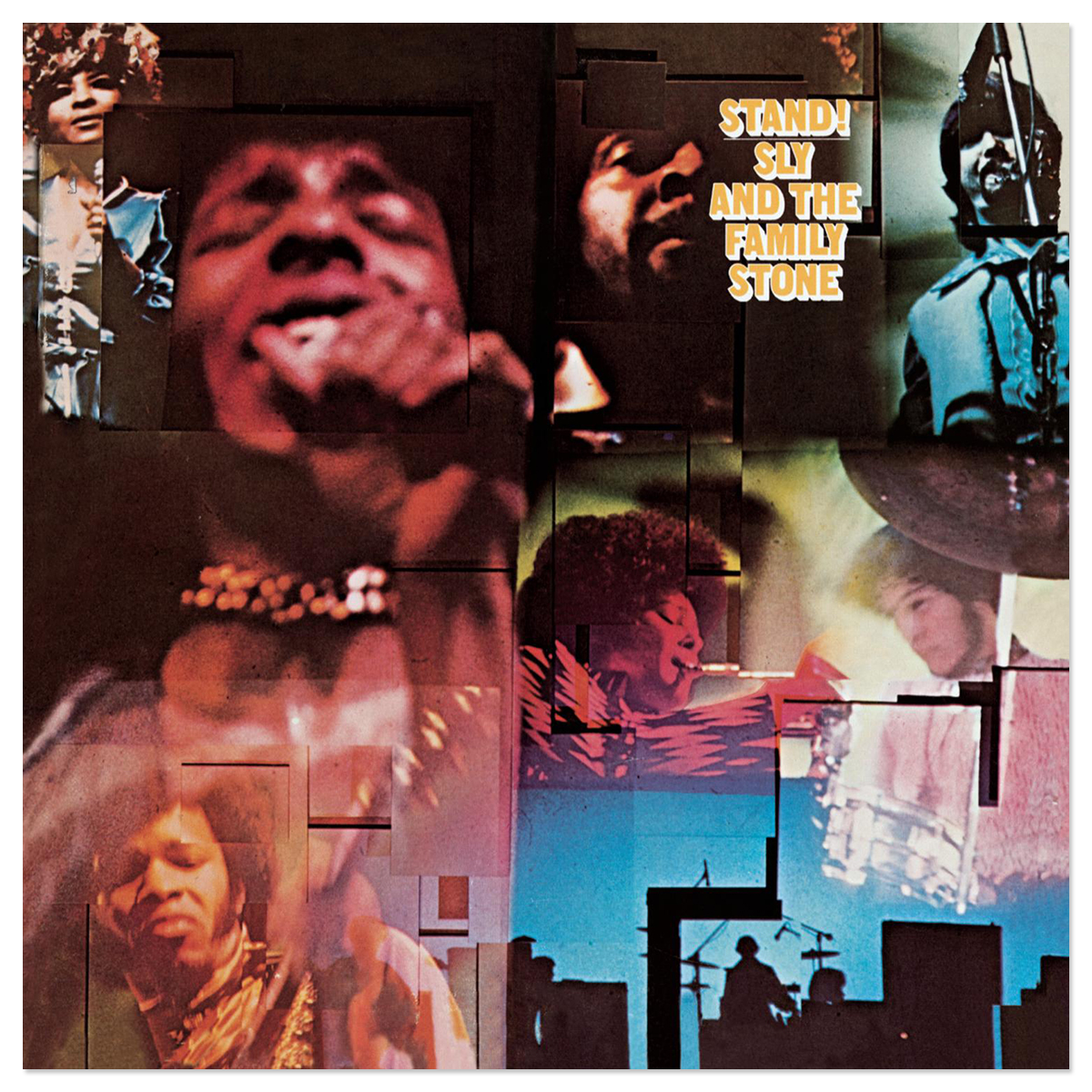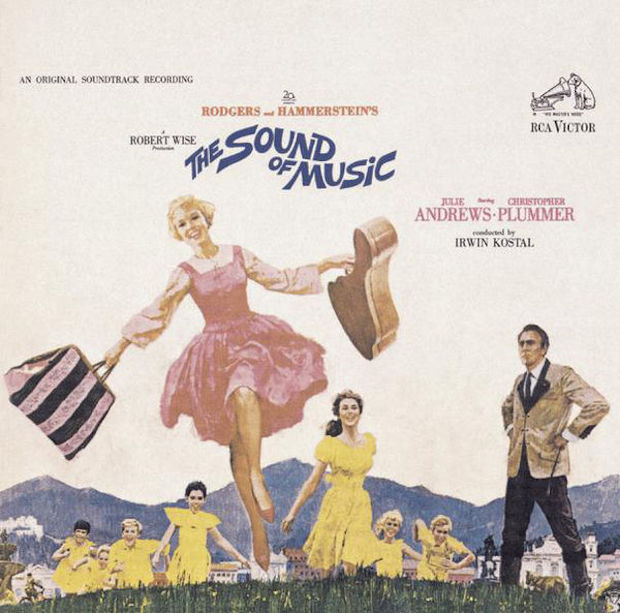Forty years ago today, Devo released their historic debut, Q: Are We Not Men? A: We Are Devo!. Here's an incomplete list of albums that appeared in the Billboard top 20 in August 1978, the same month Devo brought that polarizing LP into a perpetually unprepared world: Pablo Cruise's Worlds Away, the Moody Blues' Octave, Chuck Mangione's Feels So Good, the soundtrack to the abysmal Sgt. Pepper's Lonely Hearts Club Band movie, Barry Manilow's Even Now, Foreigner's Double Vision, and Bob Dylan's Street Legal.
Even as a shameless apologist for classic disco singles and meat-and-potatoes arena rock, things look pretty dire here -- even with the Rolling Stones, Bruce Springsteen and Teddy Pendergrass bolstering the ranks. No wonder Devo and their warnings of humanity's backslide into consumerist inanity registered so memorably to the ranks willing to listen. Devo had lucked into some influential champions -- a '77 demo made its way to David Bowie, Iggy Pop, Robert Fripp, and Brian Eno, all of whom jostled to produce the group's debut until Eno won out -- but in a summer dominated by the soundtrack of a '50s nostalgia musical, a band formed because a massacre happened at Kent State must have seemed not just too countercultural, but confrontationally so.
Four decades later, of course, they're legends -- distinctly memorable and directly influential both in their performance-art-laced messaging and in the way they actually composed a pop-deconstructing milieu that fit somewhere between NEU! and the Ramones. Their uncanny nature of building indelible hooks in even their most avant-weirdo songs gave them a way in to impressionable listeners, their visual camp was the closest early MTV ever got to embracing a Fluxus-style art sensibility, and for a lot of outsiders they seemed like one of the few signs that maybe things didn't have to keep on continuing the way they were.
By the mid '80s, they'd become shorthand for a lot of things -- representing the discomfort and awkwardness of punk to its middle-American detractors, or some stab at "cool nerd" identity, or even fashion plates thanks to the iconic "energy domes" they wore on the cover of Freedom Of Choice (which even George Carlin gave a shout-out to in 1981 -- albeit in the guise of Jesus naming some gifts he would have preferred to gold, frankincense and myrrh). But like a lot of other bands that snuck subversion onto the pop charts and into our TVs, what they really meant can often be divined by how other bands treated their music. Here's an eight-spot of memorable (and mostly successful) attempts to embody spud-dom.
Pussy Galore, "Penetration In The Centerfold" (1988)
Sometimes it's easy to forget just how deeply Devo could get into the grotesque horniness of the American psyche -- but if they were able to skewer conformity, consumerism, and every other aspect of life that could reduce people to gibbering maniacs, then a song like "Penetration In The Centrefold" fit their methods well. Still, it's 1979, so even if they got Brian Eno to produce the song, they had to relegate it to the B-side of their Duty Now For The Future single "The Day My Baby Gave Me A Surprize" because its explicit lyrics made the creepy suggestiveness of "Pink Pussycat" sound innocent. Let's hear it for the clavinet-hammering queasiness of skin-mag sexual anxiety and the thoroughly un-erotic usage of the slang term "gash."
The only way to make it feel skeevier was to get Pussy Galore to record an Albini-abetted cover version that initially only saw distribution on a split 7" given away with a Japanese psych/occult magazine, and the screaming glandular spasms that come out of an idea like that make the human libido sound like a force for total destruction (literally -- it sounds like someone in the studio's doing a bit of violent rearranging). Someone should look into whose idea it was to give Julia Cafritz the vocals on this one, because as song-gender-POV subversions go it'd make Russ Meyer have a panic attack.
Nirvana, "Turnaround" (1990)
Think of how many teens in 1992, still high off the fumes of Nevermind, snapped up the B-sides/rarities collection Incesticide just to get another buzz, and then opened the liner notes to read Kurt Cobain admit he was happier to find a copy of the Raincoats' first LP on a trip to London than he was being idolized by fans and making seven figures. Think of how many of these new listeners read the liner notes and found so many names -- Shonen Knife, the Vaselines, Daniel Johnston, the Wipers, the T.V. Personalities, the Jesus Lizard -- and realized what kind of big strange world awaited them, all because Kurt felt they were what was important in the world. His more famous declaration of disgust against the possibility that any of his fans might be racist, homophobic, or misogynist might be the most memorable and (still) resonant kick back against the infiltration of indie culture by people who wanted to make it worse, but passing through that necessary gatekeeping let you in to a world of revelatory co-signs.
That likely makes Nirvana's version of "Turn Around" (minus the synths and the space), as performed during a November 1990 John Peel session, the single most well-known Devo cover there is. And given the lyrics, self-conscious and anxious and existentially insignificant in the state of things -- "You're really nowhere/ You're so wasteful/ So foolish/ No big deal" -- paired with what we know about Cobain and his unease with fame ever since, it's the most fitting, too. For Devo, it was a B-side; for Nirvana, it was a constant.
The Mummies, "Uncontrollable Urge" (1991)
These guys. The pioneers and sole vanguard of what they called "budget rock" -- garage rock for people who never bothered to clean out their garage, if they even had one -- the Mummies came out of San Bruno, California a few decades after Keith Hernandez was born there and a few decades before the town was consumed Akira-style by the San Francisco tech sector. Their mission: to simultaneously antagonize and entertain anyone who came within their gauze-trailing perimeter, playing and recording on cheap, ready-to-disintegrate equipment and playing shows that added even more of a deranged edge to their already noisy-as-hell repertoire. Just press play on that clip up there, and you'll get the gist -- though if you stop there, you'll miss out on their '92 classic of post-Sonics/pre-Burger rock Never Been Caught and their brilliant single "(You Must Fight To Live) On The Planet Of The Apes," and then how would you be able to live with yourself?
Anyways, here's them playing "Uncontrollable Urge" in Hollywood on September 6. 1991 -- camcordered for posterity, initially released on a compilation record hosted/curated by living miracle Nardwuar The Human Serviette, and then -- here's where it gets ridiculous -- put out in '93 as a counterfeit entry in Sub Pop's Singles Club 7" series. Note the crude reproduction of the Sub Pop logo in Mac typeface Chicago, the completely blank gradient label, and reproductions of both the letter Sub Pop's Hannah Parker sent to them as an inquiry ("I was wondering if you would like to do a split single with Girl Trouble") and their cartoonishly hostile response ("I guess I could say that we appreciate the offer, but I would only be lying. So Fuck Off").
Claw Hammer, "Jocko Homo" (1991)
You know the story: Punk/noise band emerges, puts out a few albums on a reputable indie label, gets signed to a major grasping for the next big alterna-thing, and burns out, all within the span of just over a decade. Claw Hammer were one of those bands, some kids out of Long Beach, California that ran the gauntlet of West Coast hardcore in the mid '80s and came out the other end itching to do something crazier and less regimented by the time they formed a band of their own. Play influence-connect-the-dots with these guys, and you'll get a name sourced from Beefheart, a gig backing Wayne Kramer, and their most renowned act of inter-generational collision with 1991's Sympathy For The Record Industry release Q: Are We Not Men? A: We Are Not Devo!
This release was presumably inspired by and simpatico with Pussy Galore's front-to-back clamber-through of the Stones' Exile On Main St. But Claw Hammer one-upped Jon Spencer and company by actually getting Mark Mothersbaugh to take a break from composing the Rugrats soundtrack to contribute suitably wigged-out and highly complimentary liner notes: "Updated versions of muzikill information re-interpreted for an accelerated downward spiral in the retrograde evolution of the species... original versions once beyond the cutting edge now sound quaint." Well, shit, how am I supposed to compete with that for a descriptor?
Superchunk, "Girl U Want" (1992)
Not to be outdone by Devo's other primary creative mind, Gerald Casale wrote a set of liner notes for another tribute album -- this one, the indie-goes-new wave compilation Freedom of Choice, which had the deceptive surface appearance of being one of those "cool kids goof on their '80s guilty pleasures" situations but was positioned by Casale as something deeper, a brief if exciting respite from empty consumerism before a new generation of spuds decided the status quo wasn't that bad after all. "For them freedom means choosing between Pepsi and Coke, a Blazer or a 4-runner, a Democrat in a blue suit or a Republican in a grey suit. In other words, really no choice at all. Driven by fear, this brand of spud will gladly vote our constitutional rights away in favor of letting the corporate feudal state decide."
This is still a very real 2018 kind of thing to worry about, and the band that covered Devo on this comp -- a different Freedom Of Choice classic than the title track -- is still a very real 2018 kind of group to keep that independent spirit going. (If What A Time To Be Alive had a cease-and-desist aimed at it from the fine folks at OVO Sound for title infringement, Superchunk could've renamed the decidedly veteran-activist-vibes album I Can't Believe I Still Have To Protest This Shit.) In any case, hearing "Girl U Want" given all the permanent-adrenaline push of hardcore while still letting that twitchy rhythm carry things is the best kind of "similar but louder" cover version you could ask for, less a case of bulldozing the original than it is hot-rodding it.
Moby, "Whip It (Death Metal Version)" (1996)
Animal Rights, folks. Whew. Who knows what we'd think of Moby now if Play hadn't brought him back into the good graces of dance music, because in '96, Moby going from techno to a nostalgic look at hardcore punk was one of the most baffling stylistic shifts of its time. (Douglas Wolk's line for a now-vanished 1997 Salon.com review that "maybe somebody should try to convince Moby that guitars are actually made out of dead animals" is too good to be lost to a dead link in a Wikipedia citation.) Zigging while the increasingly popular Prodigy and Chemical Brothers zagged might've done a lot for his rebel cred, but his cover of Mission Of Burma's "That's When I Reach For My Revolver" sure didn't-- especially once he changed the title to "That's When I Realize It's Over" to appease a skittish MTV. But that might not even be the most nonsensical cover he did around that time: one of the additional tracks on his single for "Come On Baby" is this "Death Metal Version" of "Whip It" that isn't actually death metal.
It's a hell of a two-fer to screw up metal and new wave at the same time, but the idea of taking one of the most iconic new wave songs ever recorded and take away its turbo-motorik tempo in an attempt to turn it into some kind of logy sub-Sabbath sludge rock is uniquely baffling. Not to go to the "Fu Manchu cover of 'Freedom Of Choice'" well one time too many ("something that’d make Rainier-guzzling dudes in Chevelles shout “DEVO!” as a fuck-yeah celebration instead of an epithet hollered at punks"), but if you're gonna cover Devo as a grunty longhair hesher jam, at least do right by it by keeping the pace up. Even a post-Max Cavalera Sepultura knew this.
Rage Against The Machine, "Beautiful World" (2000)
Is it safe to say that Rage Against the Machine have aged better than most of us expected now that we don't have to deal with their terrible nu-metal bastard sons as much anymore? There's always going to be a need for surly hard rock, and better still when it comes from a band that sees hip-hop as an influence instead of an opposing force. Best yet when they spent the '90s as alternative nation's Cassandras, making the same aggravated push against oligarchical exploitation that's surged back into a widening counterculture again. Sure, protest music works better as catharsis than an actual substitute for action, but at least it helps you feel less alone in this shit -- which is why their tribute album Renegades has grown harder for me to roll my eyes at over the years. There are few versions on this album that I'll take over their originals, but they do their own thing effectively anyways ("Maggie's Farm" works bizarrely well as Gen-X scowl-rock), and just putting EPMD and Cypress Hill in the same rebel canon as Springsteen and the Stooges does my cross-generational music-dork appreciating heart good. Best of all is that not caring about coming across as unsubtle makes their earnestness feel almost uncomfortably powerful.
Devo might have concealed their outsider status in "Beautiful World" so slyly that Target cynically used it to promote consumerism a year before Rage's version came out, but there's no mistaking the alienation that beautiful world runs on in the minimalist, acoustic, beatless slow burn that Tom Morello and a surprisingly vulnerable-sounding Zack de la Rocha build around themselves like a protective rollcage.
Flaming Lips, "Gates Of Steel" (2013)
If you saw "Flaming Lips Devo cover" and guessed "slower, gauzier, and drenched in glitter," congrats, you know the score. That's what they've more or less done covers-wise for the last 10 years in their periodic attempts to recenter themselves (word to Pink Floyd, Stone Roses, King Crimson, and the Beatles), and they usually feel more like omnidirectional palate (and palette) cleansers that aim to recombobulate whatever it is that made both themselves and the artists they cover worth enjoying. It's rarely surprising but infrequently disappointing, and if marathoning all of it renders everything kind of samey in their manic color-spraying orbit, hey -- even Booji Boy was a fetus once, right?






